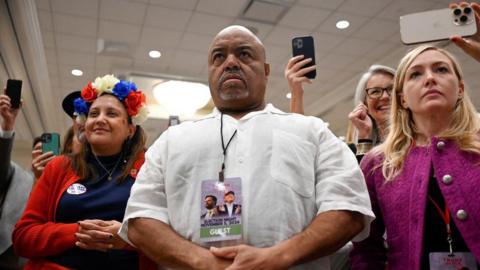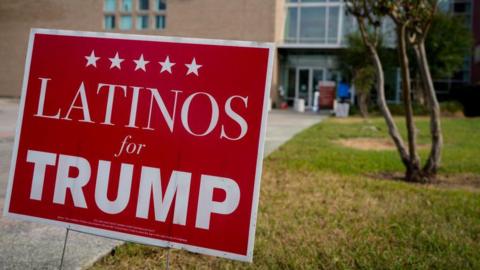Trump’s national economic messaging hit home with working-class voters in the Midwestern state of Michigan, too.
With nearly all votes counted, Trump is leading the state that he lost in 2020 by about 85,000 votes. He increased his vote share in rural areas as well as in Macomb County, home to many working-class voters in the Detroit suburbs.
One of them, Nahim Uddin, a delivery driver and former Ford car-worker, cast his ballot for Trump because he said the former president would drive down prices.
“I went to go purchase a car - the interest rates had skyrocketed,” the 34-year-old said. “That’s the whole reason I voted for him.”
The same was true for Yian Yian Shein, a small business owner in the city Warren, who said Trump would lower income taxes and help people like her.
Democrats tried to tailor their economic messages in Michigan, touting their investments in electric car manufacturing while securing an endorsement from United Automobile Workers president Shawn Fain, a frequent Trump critic.
But Republicans were able to “neutralise” those messages by arguing that the transition to electric vehicles would come at the cost of jobs, said Michigan State University professor Matt Grossmann.
Ultimately what cost Democrats among blue-collar voters across demographic groups was the perception that they were to blame for high prices and pinched budgets.
“Largely, voters have felt economic pain due to the post-Covid inflationary period, and they’re taking it out on Biden” and Harris, said University of Michigan professor Jonathan Hanson.



